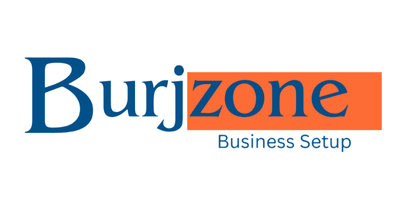Our Blog
Home / Blog
A Complete Guide to Business Formation in Dubai, Abu Dhabi, and Other Emirates
Setting up a business in the United Arab Emirates (UAE) is an exciting opportunity for entrepreneurs and investors from around the world. With its world-class infrastructure, tax-friendly environment, and strategic geographic location, the UAE—particularly Dubai, Abu Dhabi, Sharjah, and other Emirates—offers a dynamic platform for business success. This guide covers everything you need to know about business formation across the Emirates, from types of entities to licensing, legal requirements, and location considerations.
1. Why Start a Business in the UAE?
The UAE has established itself as a global business hub. Investors are attracted to:
100% foreign ownership in many sectors
No personal income tax
Strategic location between Asia, Europe, and Africa
State-of-the-art infrastructure and logistics
Freezones offering specialized business environments
Dubai leads in commercial activities, while Abu Dhabi focuses on industry and government projects. Sharjah and Ajman offer cost-effective options for SMEs and startups.
2. Choosing the Right Business Jurisdiction: Mainland vs. Freezone vs. Offshore
One of the most critical decisions is selecting the right jurisdiction for your business:
Mainland: Ideal for businesses wanting to trade within the UAE market freely. Examples include Deira (Dubai) or Khalidiya (Abu Dhabi).
Freezone: Suitable for 100% foreign-owned businesses focused on international trade or services. Popular zones include JAFZA (Dubai), KIZAD (Abu Dhabi), and Shams (Sharjah).
Offshore: Designed for international business without local operations, offering privacy and tax benefits.
3. Legal Structures Available for Business Formation
The UAE offers several types of legal structures depending on your business needs:
Sole Proprietorship
Limited Liability Company (LLC) – Common in Dubai and Sharjah
Freezone Company (FZC / FZE)
Branch of Foreign Company
Civil Company (for professional services)
Each structure has unique regulatory, tax, and operational implications.
4. Step-by-Step Process of Business Formation
Here’s a simplified version of the formation process in most Emirates:
Choose your business activity
Select a legal structure and jurisdiction
Reserve a trade name through DED or Freezone
Apply for initial approval
Draft the MOA or Local Service Agent Agreement
Choose an office space
Obtain the business license
Register with immigration and labor
Open a corporate bank account
Note: Processes may differ slightly between Dubai DED, Abu Dhabi DED, and Freezones like RAKEZ or DMCC.
5. Key Costs Involved in UAE Business Formation
Setup costs vary by emirate, legal structure, and activity. A rough estimate:
Dubai Mainland: AED 12,000 – AED 30,000+
Freezones (e.g., IFZA, SHAMS): AED 6,000 – AED 15,000
Abu Dhabi: AED 8,000 – AED 20,000
Sharjah: Starting from AED 5,750+
Additional expenses include visa costs, office rent, PRO services, and bank account setup.
6. Choosing the Right Location: Dubai, Abu Dhabi, Sharjah & Beyond
Location affects visibility, cost, and access:
Dubai: Ideal for luxury, retail, tech, tourism
Abu Dhabi: Best for government-linked or industrial sectors
Sharjah: Affordable for education, publishing, manufacturing
Ajman, UAQ, RAK: Budget-friendly zones with simplified procedures
7. Post-License Requirements
After obtaining your license:
Apply for staff visas
Register for corporate tax (if required)
Maintain accounting records
Renew your license yearly
Comply with UBO and AML regulations
8. Why Work with a Business Formation Consultant?
Consultants offer:
Complete setup and PRO assistance
Location and legal advice
Faster processing and reduced errors
Long-term compliance and renewal support
They handle the paperwork while you focus on your business strategy.
Starting a business in the UAE is a smart move with the right guidance. Whether you’re setting up in Dubai Marina, Abu Dhabi Industrial Zone, or Sharjah Freezone, proper planning, legal clarity, and local knowledge are key to a successful launch.
#BusinessFormationUAE #StartBusinessDubai #DubaiBusinessSetup #AbuDhabiCompanyFormation #SharjahFreezoneSetup
#UAEBusinessGuide #CompanyRegistrationDubai #MainlandLicenseUAE #FreezoneBusinessUAE #BusinessConsultantDubai
